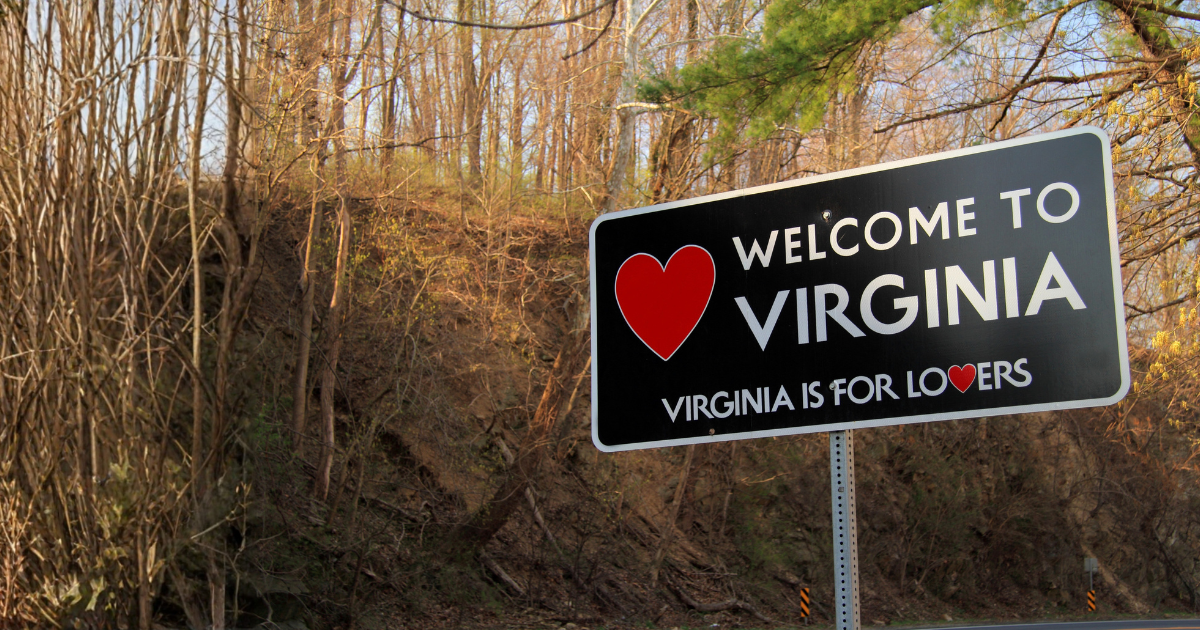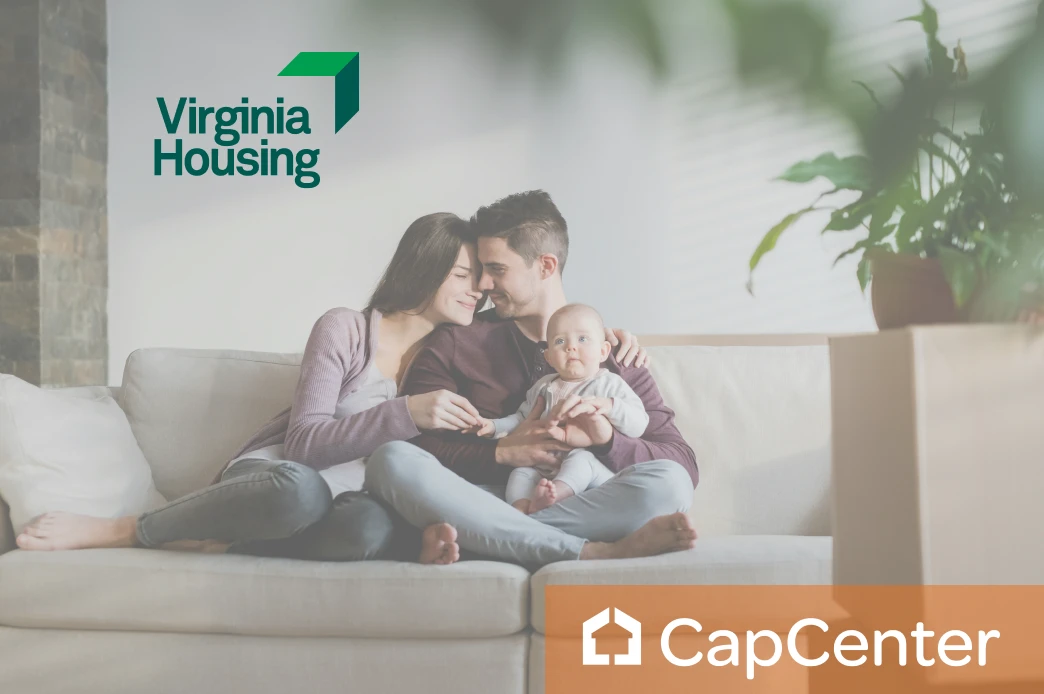Buying your first home is one of life’s most exciting milestones. It’s a step toward financial independence, stability, and building long-term wealth. But for many Virginians, the path to homeownership can feel out of reach. High home prices, saving for a down payment, and navigating loan requirements are just some of the challenges first-time buyers face.
At CapCenter, we specialize in helping new buyers overcome those barriers. With affordable mortgage options for first-time homebuyers in Virginia, we make it possible to purchase a home with little upfront cash and manageable monthly payments. From grants to low-down-payment loans, there are several programs designed to make homeownership more accessible.
In this guide, we’ll break down the most popular programs available to first-time buyers, including:
- Virginia Housing DPA Grant
- Virginia Housing Second Plus
- HomeReady (Fannie Mae)
- HomePossible (Freddie Mac)
- Fannie Mae 97 (3% Down Loan)
- FHA Mortgages
We’ll also cover how to decide which program is right for you and how CapCenter helps first-time buyers save even more.
What is a First-time Homebuyer?
When you hear the term first-time homebuyer, you might think it only applies to people who have never owned property before. However, for programs like HomeReady, Home Possible, and Virginia Housing Down Payment Assistance, the definition is a bit broader and more flexible.
According to Fannie Mae and Freddie Mac, a first-time homebuyer is anyone who has not owned a home within the past three years. That means:
- If you owned a home in the past but sold it more than three years ago, you’re considered a first-time buyer again.
- If you owned a home jointly with a spouse or partner, and it’s been more than three years since your name was on the title, you may qualify.
- Single parents or displaced homemakers who previously owned a home with a spouse but no longer maintain ownership can also qualify under this definition.
This expanded definition is important because it allows more people to access the low down payment (1%) options, reduced mortgage insurance, and flexible income guidelines available through these programs.
In other words, you don’t have to be a lifelong renter to qualify—many former homeowners can still take advantage of the benefits if enough time has passed since their last homeownership.
The Challenge First-Time Buyers Face
Before diving into the programs, let’s look at the common obstacles first-time buyers face:
- Saving for a Down Payment
A 20% down payment used to be the norm, but on today’s home prices, that’s a huge ask. For example, on a $350,000 home in Virginia, 20% equals $70,000—well beyond most first-time buyers’ savings. - Closing Costs
On top of a down payment, closing costs (loan origination fees, title insurance, taxes, and more) often range between 2–5% of the loan amount. That’s another $7,000–$15,000 upfront. - Credit Requirements
First-time buyers may not have long credit histories or perfect scores. Many conventional loans require higher credit scores, making it difficult for some buyers to qualify. - Income Limits
While incomes may be steady, student loan debt or other obligations can affect debt-to-income ratios, reducing borrowing power.
The good news? Affordable first-time homebuyer programs are designed to tackle these very issues. Let’s explore how.
Virginia Housing DPA Grant
The Virginia Housing Down Payment Assistance (DPA) Grant provides eligible first-time homebuyers with up to 2.5% of the home’s purchase price to cover their down payment. Since this is a grant—not a loan—you never have to pay it back.
How It Works
- Provides up to 2.5% of the purchase price for eligible first-time buyers.
- Funds can be applied directly toward the down payment.
- Since it’s a grant, it does not need to be repaid.
Who Qualifies
- Must be a first-time homebuyer (no ownership in the past three years).
- Must be buying a primary home in the state of Virginia
- Meet Virginia Housing income and purchase price limits.
- Complete a homebuyer education course.
Pros & Cons
✅ Free money that never has to be repaid.
✅ Substantially reduces the need for savings.
❌ Limited to Virginia Housing guidelines.
❌ Availability of funds may vary.
Virginia Housing Second Plus
The Virginia Housing Second Plus program combines a primary mortgage with a second loan to cover down payment and closing costs. This option provides flexibility if the DPA Grant isn’t enough to cover your upfront expenses.
How It Works
- Combines your primary mortgage with a second mortgage.
- Second mortgage can cover down payment and closing costs.
- Designed to be affordable with favorable terms.
Who Qualifies
- Must be buying a primary home in the state of Virginia
- Repeat and first-time homebuyers who meet income and sales price limits.
- Completion of Virginia Housing’s education course required.
Pros & Cons
✅ Helps with both down payment and closing costs.
✅ Can be used in combination with other Virginia Housing programs.
❌ The second mortgage must be repaid.
❌ Not every buyer will qualify based on income limits.
HomeReady (Fannie Mae)
HomeReady mortgages are perfect for creditworthy low- to moderate-income borrowers. With down payments as low as 3%, reduced mortgage insurance premiums, and the ability to use household income from non-borrowers to qualify, HomeReady offers broad flexibility.
Key Features
- Down payments as low as 3%.
- Reduced mortgage insurance costs compared to standard loans.
- Flexible income guidelines (non-borrower household income can help qualify).
- Homebuyer education course required.
Why It’s Great for First-Time Buyers
- Provides affordability on both upfront and monthly costs.
- Ideal for multigenerational households or buyers with roommates contributing to housing expenses.
HomePossible (Freddie Mac)
HomePossible loans are another affordable option, offering 3% down payment requirements and reduced mortgage insurance costs. This program is especially useful for first-time buyers who want flexible ways to qualify for a home loan.
Key Features
- Down payments as low as 3%.
- Reduced private mortgage insurance (PMI) requirements.
- Allows a variety of income sources to help qualify.
- Education course required for first-time buyers.
Why It’s Beneficial
- Expanded opportunities for buyers with limited savings.
- More flexible guidelines than standard conventional loans.
Fannie Mae 97 (97% LTV Loan)
The Fannie Mae 97 loan allows you to finance up to 97% of the home’s value. With only a 3% minimum down payment, it’s one of the simplest and most accessible conventional mortgage programs.
Key Features
- Available only to first-time buyers.
- Conventional loan terms with standard underwriting.
- Requires private mortgage insurance until 20% equity is reached.
Why It Stands Out
- Straightforward, conventional option without income restrictions.
- Easy-to-understand structure, making it accessible for first-time buyers.
FHA Mortgages
FHA loans are insured by the Federal Housing Administration and have long been a staple for first-time buyers.
Key Features
- Down payments as low as 3.5%.
- More lenient credit score requirements (as low as 580 with 3.5% down).
- Higher debt-to-income allowances.
Why They’re Popular
- Great for buyers with lower credit scores.
- Flexible qualification makes homeownership possible for more households.
- Widely available and recognized nationwide.
Considerations
- FHA loans require mortgage insurance premiums (MIP) for the life of the loan unless refinanced.
- May cost more over the long term compared to conventional loans.
Tips for First-Time Homebuyers
- Check your credit early. Knowing your score can help you choose the right program.
- Take advantage of education courses. Not only are they required for many programs, but they also provide valuable knowledge about budgeting and homeownership.
- Get pre-qualified. Understanding what you can afford helps you shop for homes confidently.
- Compare total costs, not just down payment. Look at monthly payments, insurance, and long-term costs.
Why Choose CapCenter for Your First Mortgage?
At CapCenter, we pair these programs with our Zero Closing Cost mortgage offering, helping first-time buyers save thousands. Our experienced loan officers will walk you through each option, ensuring you find the best mortgage program for your first home. Buying your first home doesn’t have to be out of reach. With the right program and the right partner, you can step confidently into homeownership.
Final Thoughts
Becoming a homeowner may seem intimidating, but with the right mortgage program, it’s absolutely within reach. Whether you qualify for the Virginia Housing DPA Grant, need the flexibility of HomeReady or HomePossible, or prefer the accessibility of an FHA loan, there’s a program that can help you step into your first home with confidence.
At CapCenter, our goal is simple: make homeownership affordable. Let us guide you through the process, match you with the best program, and save you money along the way.
Ready to get started? Contact CapCenter today and take the first step toward owning your first home in Virginia.




